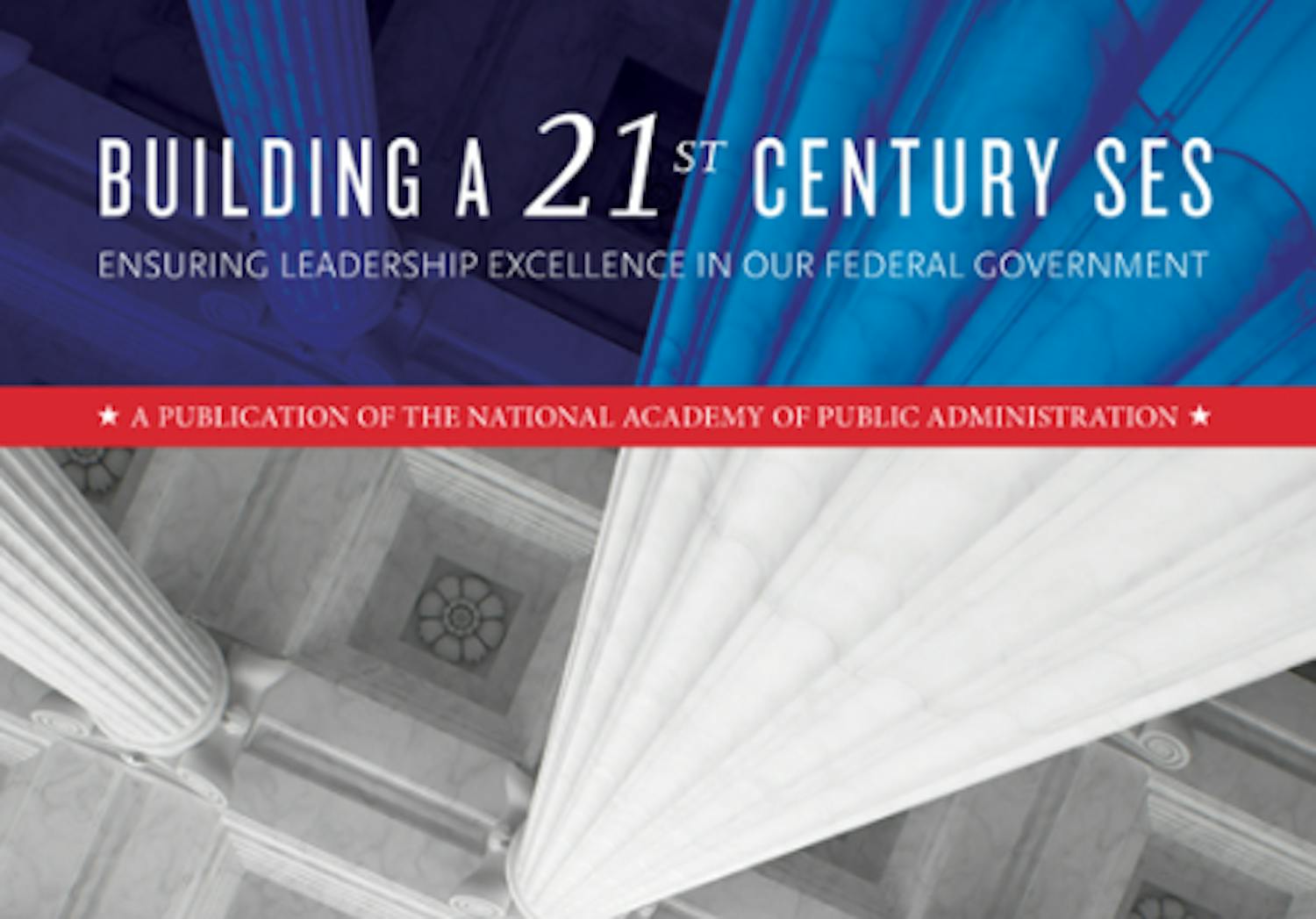
Building a 21st Century Senior Executive Service
Building a 21st Century SES is an unprecedented collection of perspectives on the SES from 24 of the nation’s most respected public sector leaders. The book was edited by Dr. Ronald Sanders, Academy Fellow and Vice President at Booz Allen Hamilton, with Dr. Elaine Brenner and Frederick Richardson.
Click the button below to view the Download Report.
Download ReportKey Findings
Widely acknowledged challenges include:
- An ongoing retirement wave that could result in the loss of institutional knowledge at the very time when government’s tasks have become more complex than ever;
- Limited inter-departmental and interagency mobility that reinforces government silos and makes solving enterprise-wide challenges more difficult;
- The need for new skills and competencies in order to lead and manage in a more virtual, networked, and globalized world; and
- A succession pool of up-and-coming GS-14s and 15s who may be less inclined to apply for and join the SES.
Recommendations
It did not take much to convince the venerable Academy (with a grant from Booz Allen)8 to agree to sponsor the publication of an anthology that attempted to capture the insights revealed during the discussions the day of the summit…and since.
The result is this book, organized around the same five questions we asked of summit participants, plus the thoughts of several other notable leaders who couldn’t attend the summit: the Honorable Michèle Flournoy, former Under Secretary of Defense for Policy; General Michael V. Hayden, former Director of the National Security Agency (NSA) and the Central Intelligence Agency (CIA); Letitia Long, former Director of the National Geospatial-Intelligence Agency (NGA); the Honorable G. Edward DeSeve, former OMB Comptroller and Acting Deputy Director for Management; and the Honorable David M. Walker, former Comptroller General of the United States.
We asked each of these luminary leaders to contribute a chapter to the anthology. Rather than a dry set of policy recommendations, we asked them to tell a story—about their careers, their defining moments as leaders of career executives, their own personal leadership philosophies, and, most of all, their own individual views on improving the SES. In so doing, our contributors provide what we believe is a unique perspective on the Federal government’s senior executive corps. That is what this anthology is—a collection of personal observations and insights of experienced leaders who have had to depend on career executives to fulfill their responsibilities to the people and the President.
